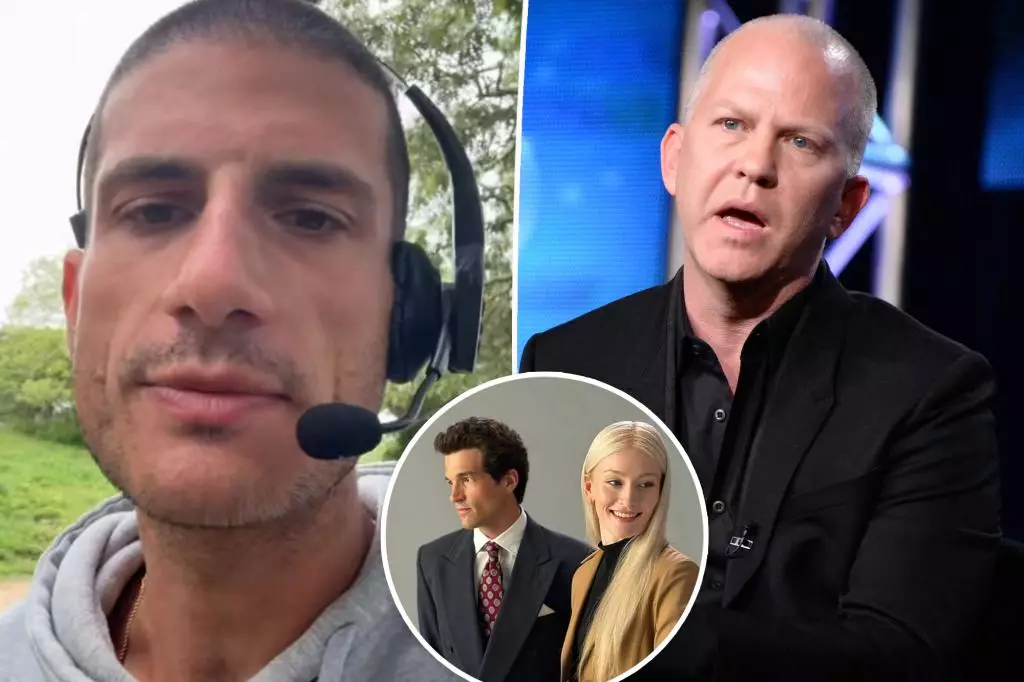In an era inundated with sensationalized storytelling and celebrity-driven narratives, the importance of respecting historical legacies cannot be overstated. The Kennedy family, with its long-standing history of public service, resilience, and complex human stories, demands a nuanced approach—not a commodification for entertainment or profit. When creators like Ryan Murphy leverage such a legacy without meaningful contribution or acknowledgment, it not only disrespects those who lived those stories but also risks trivializing their profound impact on American history.
Murphy’s comments dismissing Jack Schlossberg’s memories of his family reflect a troubling attitude: one that reduces a deeply personal and emotional connection to a historical figure to mere ignorance. This assertion dismisses the genuine experiences and heartfelt memories shared by Schlossberg, who grew up with stories and bonds that shaped his identity. Dismissing these familial ties as insignificant for the sake of sensational storytelling exemplifies a broader cultural tendency to devalue the personal amidst the pursuit of fame and financial gain. We must ask ourselves: does profiting from the Kennedy narrative justify stripping it of its depth and integrity?
Authenticity Versus Sensationalism in Portraying the Kennedys
The upcoming “American Love Story” series promises a glamorous recounting of JFK Jr. and Carolyn Bessette’s tragic romance, but the controversy lies not merely in casting choices or wardrobe aesthetics. It symbolizes a larger issue: the risk of simplifying and sensationalizing a story that involved immense tragedy, public fascination, and private grief. Hollywood’s penchant for glamorizing historical figures often results in distorted perceptions—further eroding the true meaning behind their lives.
Jack Schlossberg’s critique underscores this point: much of what is being crafted for entertainment is detached from the real human stories that define his family. The family’s consent or involvement was notably absent, which raises questions about the authenticity and respectfulness of such portrayals. It’s one thing to honor a legacy through thoughtful storytelling; it’s another to profit off of it without engaging those who intimately understand its significance. Using these stories as a backdrop for entertainment risks shifting the focus from meaningful reflection to superficial spectacle.
Profiting Off History Without Contributing to Its Causes
Perhaps the most damning aspect of Murphy’s commentary is the critique of wealth and intent. Schlossberg’s pointedly critical response highlights a common hypocrisy in Hollywood and celebrity culture: making millions off stories, legacies, and histories, while neglecting to give back to the causes and communities associated with those stories. His remarks challenge the idea that storytelling should be a noble enterprise rooted in education and advocacy, rather than a lucrative avenue to capitalize on sentimental nostalgia.
This critique prompts a larger reflection on ethical storytelling. When creators use the stories of figures like JFK Jr., they carry a responsibility—not just to entertain, but to honor truth and foster understanding. Exploiting these stories without contributing to the legacy’s original causes—public service, social justice, or community development—can diminish their cultural resonance. It suggests a superficial appreciation that values profit over purpose, and that diminishes the real human experiences behind historical narratives.
Personal Memories as a Voice of Respect and Resistance
What truly sets Schlossberg apart is his willingness to share personal memories that humanize JFK Jr.—reminding the public that behind the headlines and public personas were real individuals with stories worth preserving authentically. His anecdotes about his uncle evoke a sense of intimacy and admiration that commercial productions often overlook. By doing so, Schlossberg asserts that stories embedded with personal history deserve to be told with genuine respect, not as commodities to be packaged and sold.
His emotional recounting of his memories underscores a broader truth: history isn’t merely a collection of dates and events, but a tapestry of personal relationships, human mistakes, and small moments of love and heroism. Respecting this complexity and authenticity can elevate storytelling from mere spectacle to a meaningful tribute.
The controversy around the Kennedy saga invites a reevaluation of how we approach the legacies of influential families. It challenges creators and audiences alike: should stories be crafted to entertain at the expense of authenticity, or should they honor the real people whose lives shaped history? Schlossberg’s candid response reminds us that emotional memory and personal stories hold enduring value and that those who profit from history should contribute positively to its preservation.
In a cultural landscape saturated with sensational narratives, the true power of storytelling lies in its ability to educate, inspire, and honor. If Hollywood is to truly respect the Kennedy family’s legacy, it must do so with humility, integrity, and a genuine commitment to public service narratives—not merely as a lucrative formula for entertainment. Respecting history isn’t just about preserving the past; it’s about honoring the people who lived it and ensuring their stories endure with dignity and truth.

